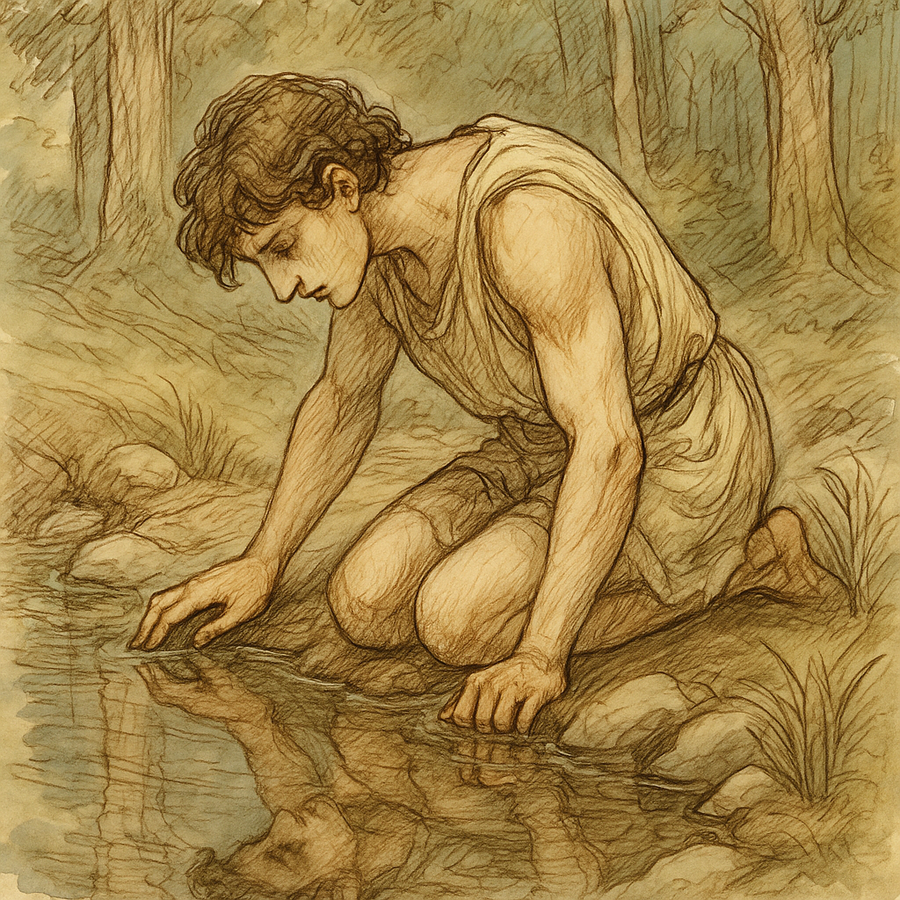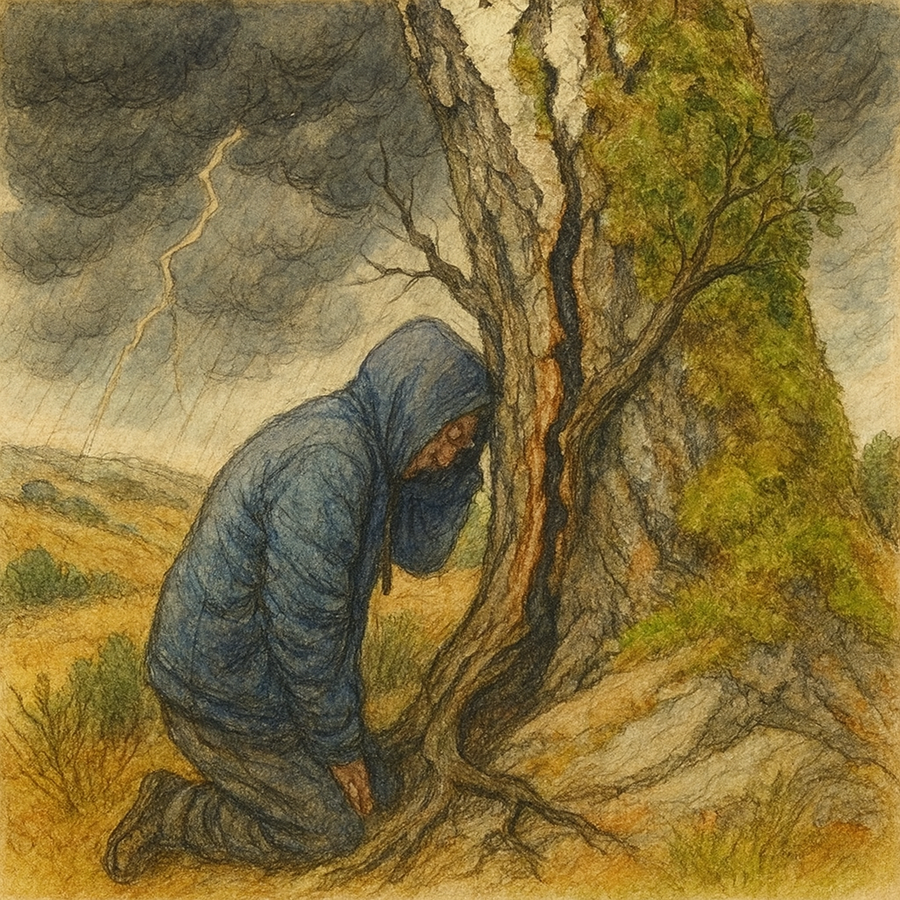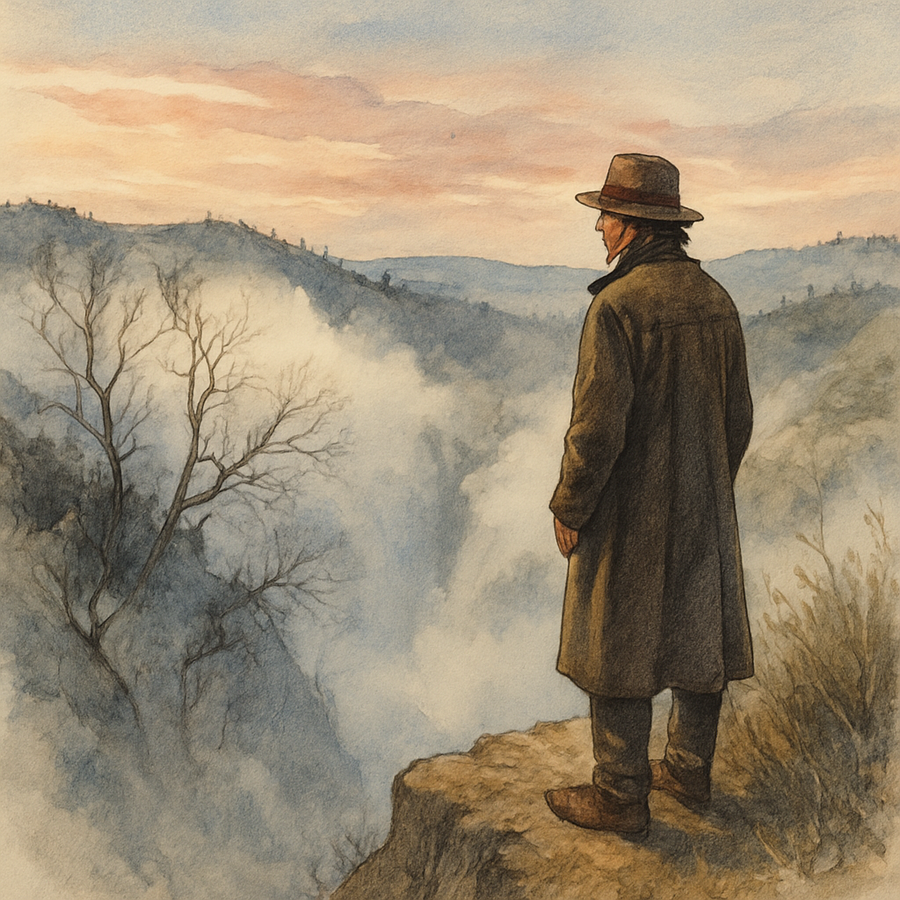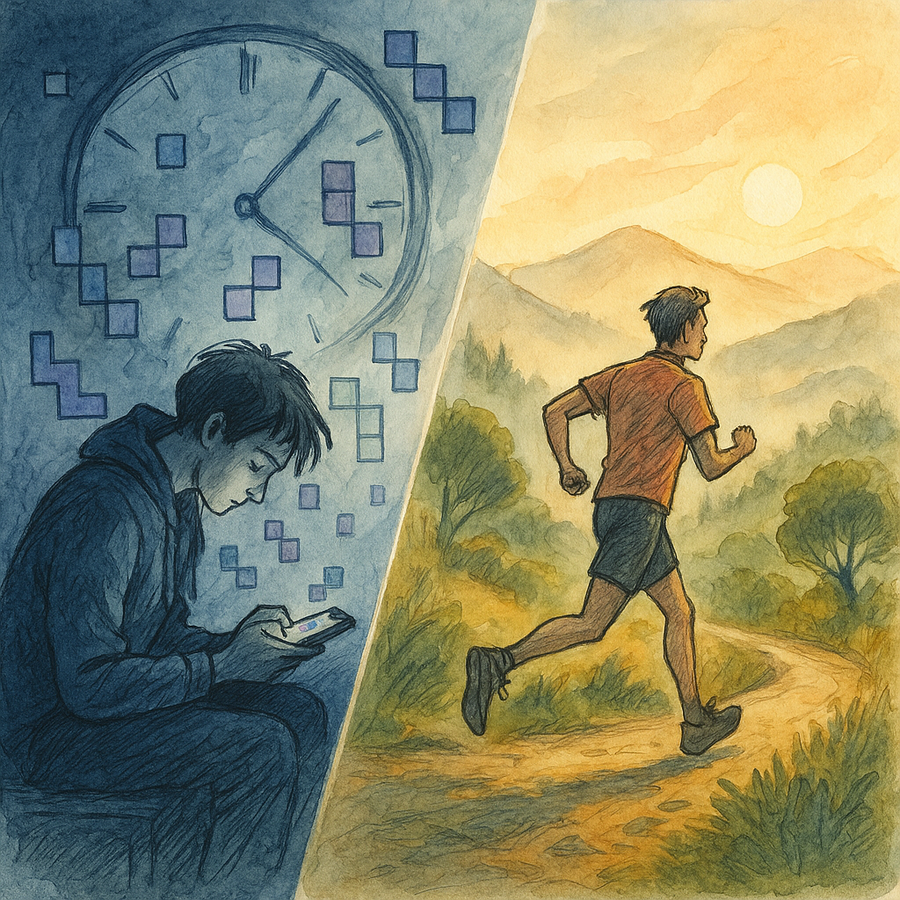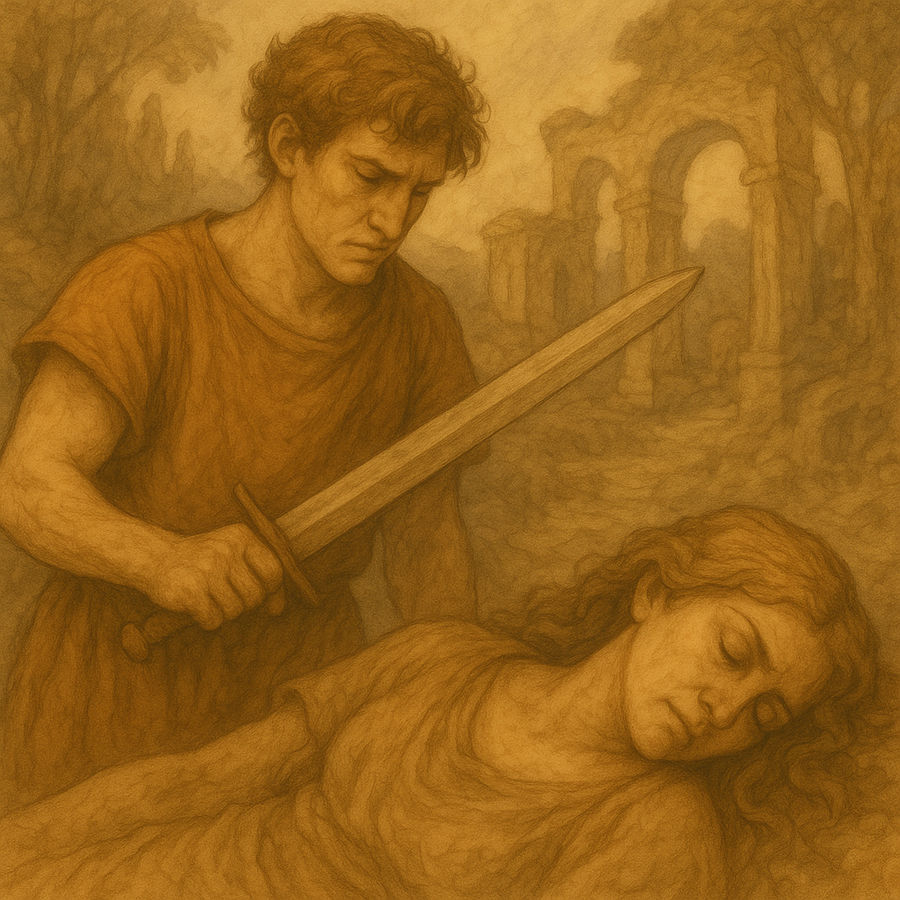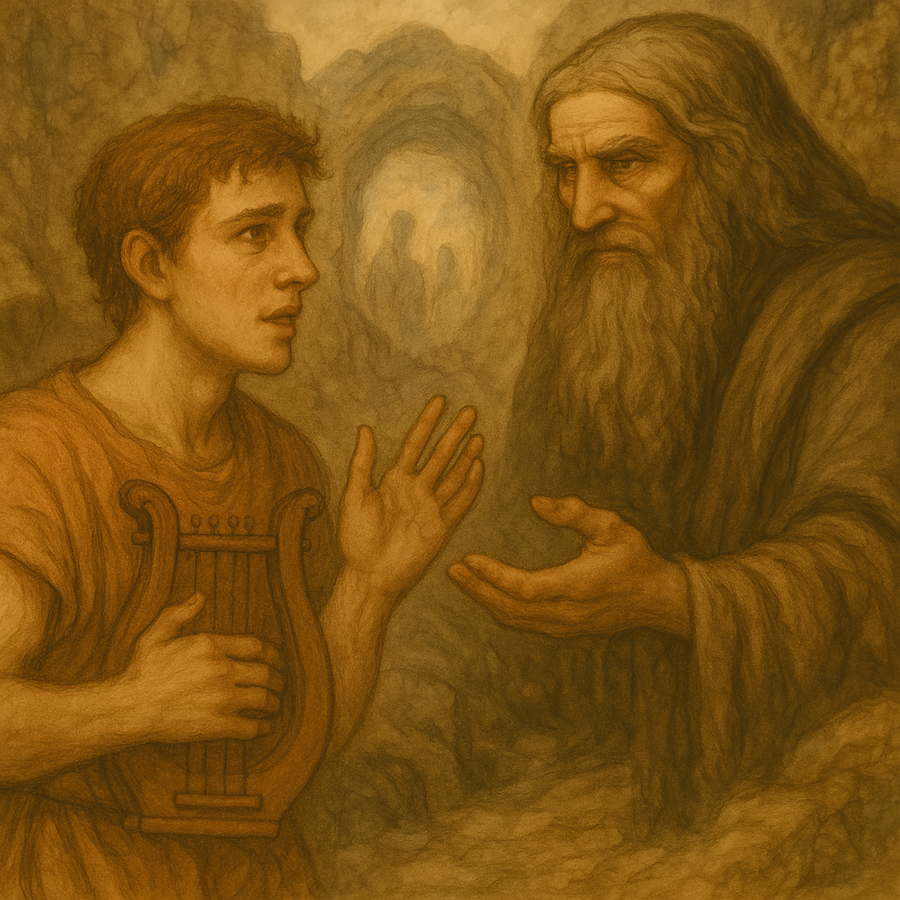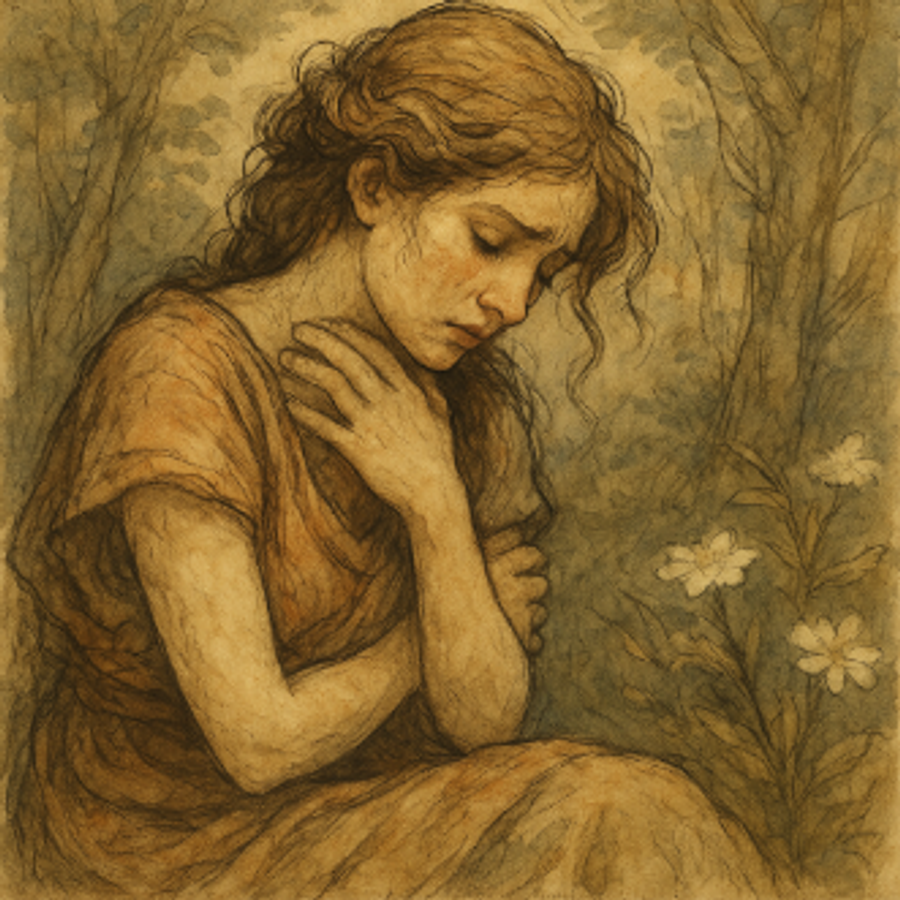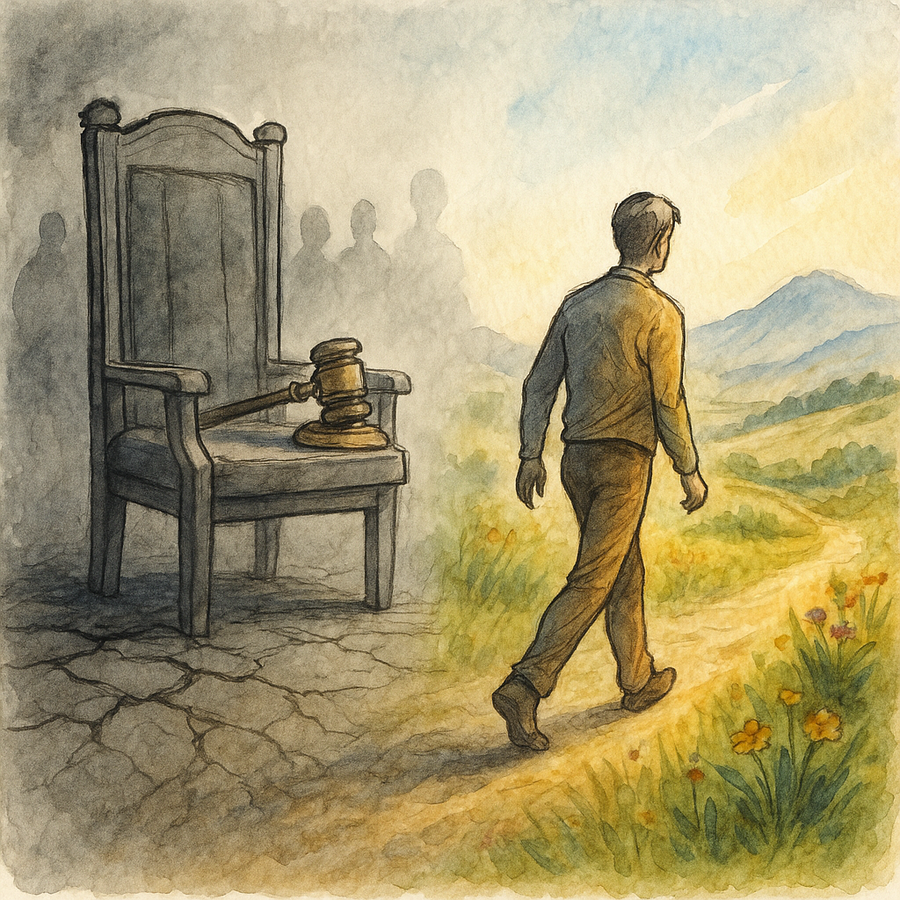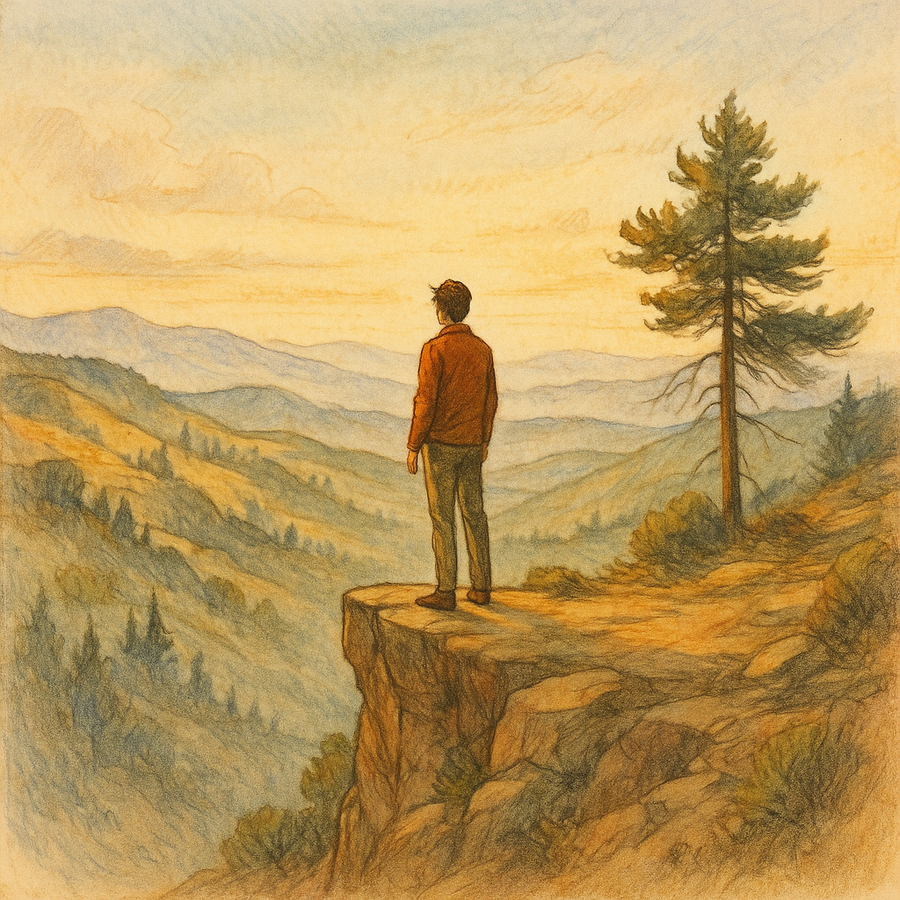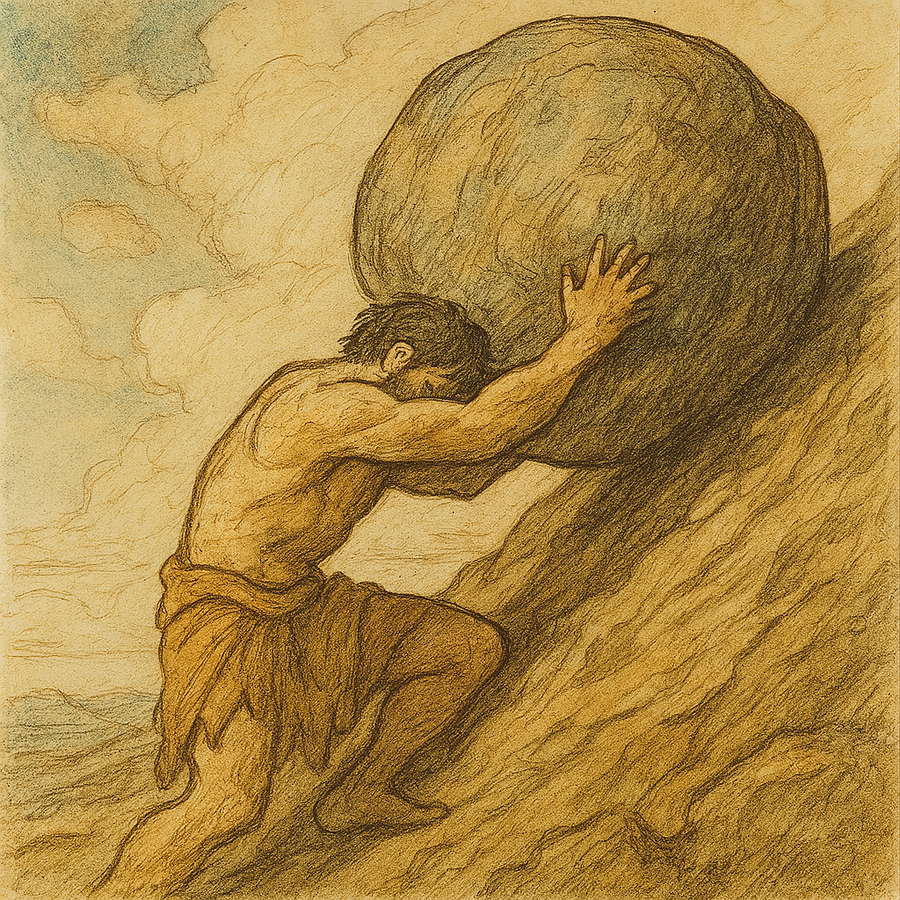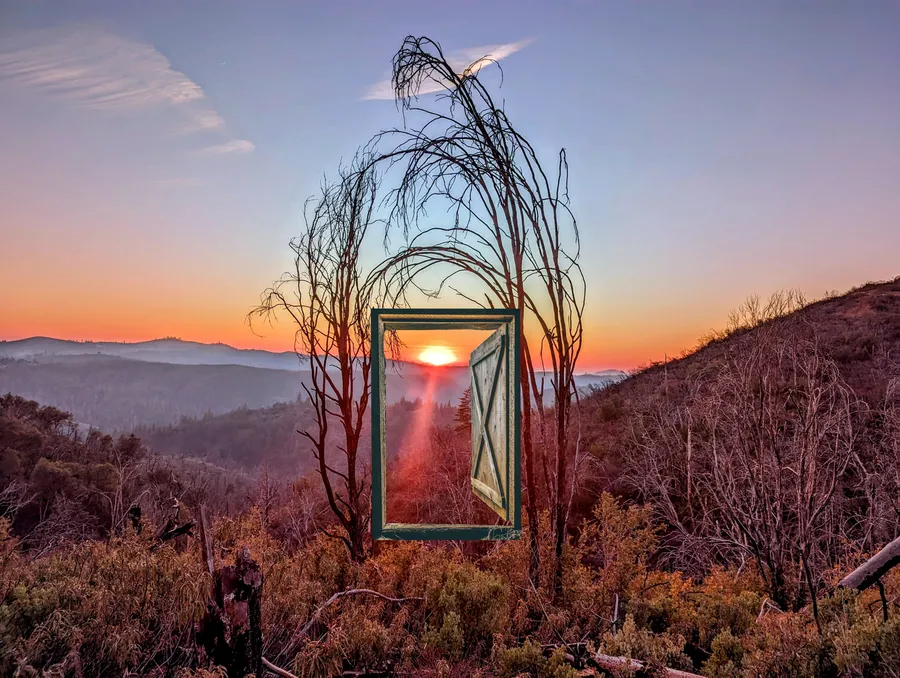He waited until the flowers grew around him
There was once a boy born of water and light.
His name was Narcissus.
His beauty was known across the land - not because he flaunted it, but because it was impossible to ignore.
Trees bent toward him. Rivers slowed. Eyes lingered.
And yet, he was empty.
Not because he lacked admirers -
But because no admiration ever reached him.
He could hear the praise, feel the desire, but never absorb the love.
Because he didn’t recognize himself in it.
The poet Ovid tells us: Narcissus was proud, even cruel.
But beneath that cruelty was confusion.
He could not offer love - not because he refused it, but because he had never truly received it.
Then one day, he found it.
A face in the water.
So still. So devoted. So close.
He fell in love at once.
He spoke to the reflection - and the reflection smiled back.
He leaned forward - and the reflection leaned too.
He wept - and saw weeping in return.
He had found the perfect lover:
Always listening. Always present. Never interrupting. Never rejecting.
But there was one thing the reflection could never do:
Touch him back.
He waited.
He waited until the flowers grew around him.
Until the hunger dried out his ribs.
Until the longing emptied him completely.
And there, by the edge of the pool, he died.
Still waiting to be met…
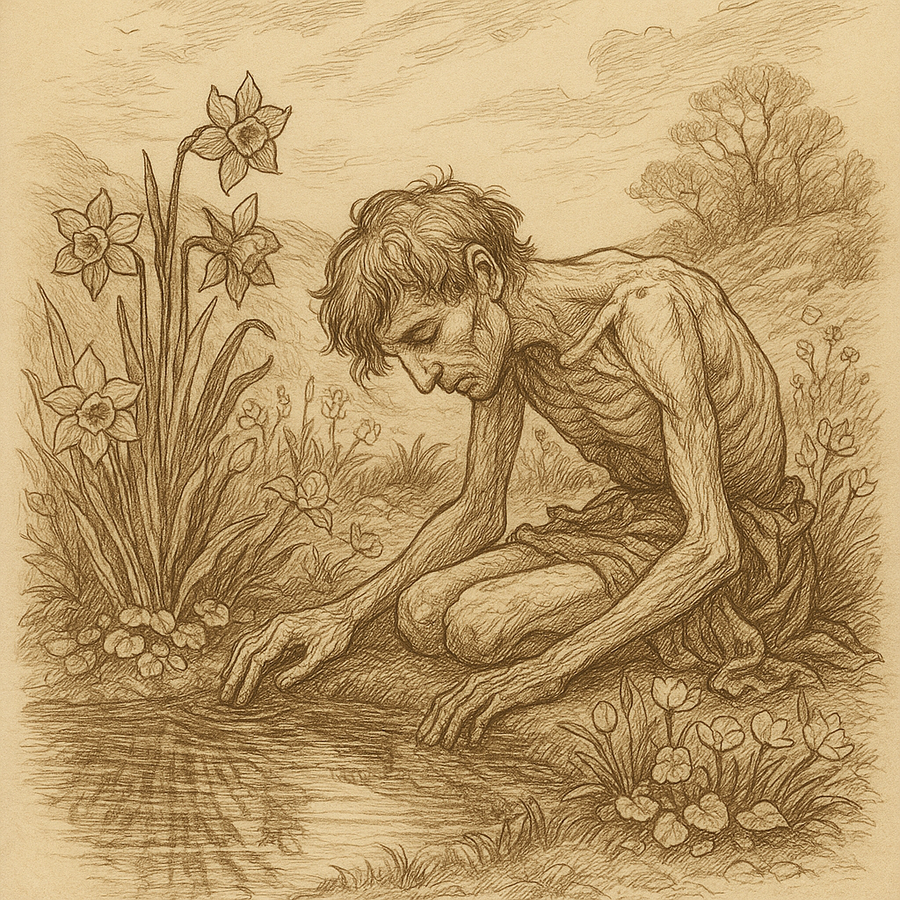
This is the myth.
Not of vanity.
But of starvation.
Narcissus was not punished because he loved himself.
He perished because he mistook his image for intimacy.
He confused being seen with being loved.
He mistook echo for connection.
And he waited too long for a response that could never come.
Thousands of years later, we are still bending over digital mirrors.
We perform.
We polish.
We wait.
And in doing so, we forget how to speak without watching ourselves…
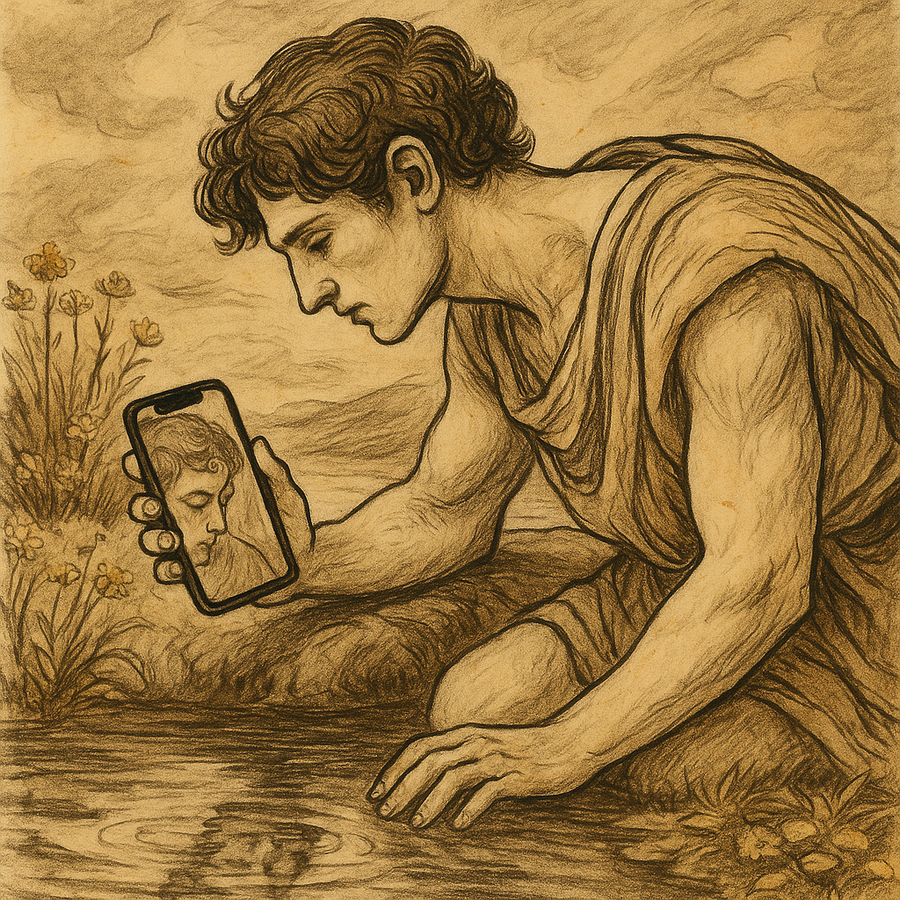
We forget how to feel when no one is looking.
How to want something we might not get.
How to exist unreflected.
The tragedy of Narcissus is not that he looked at himself -
but that he could no longer look away.
